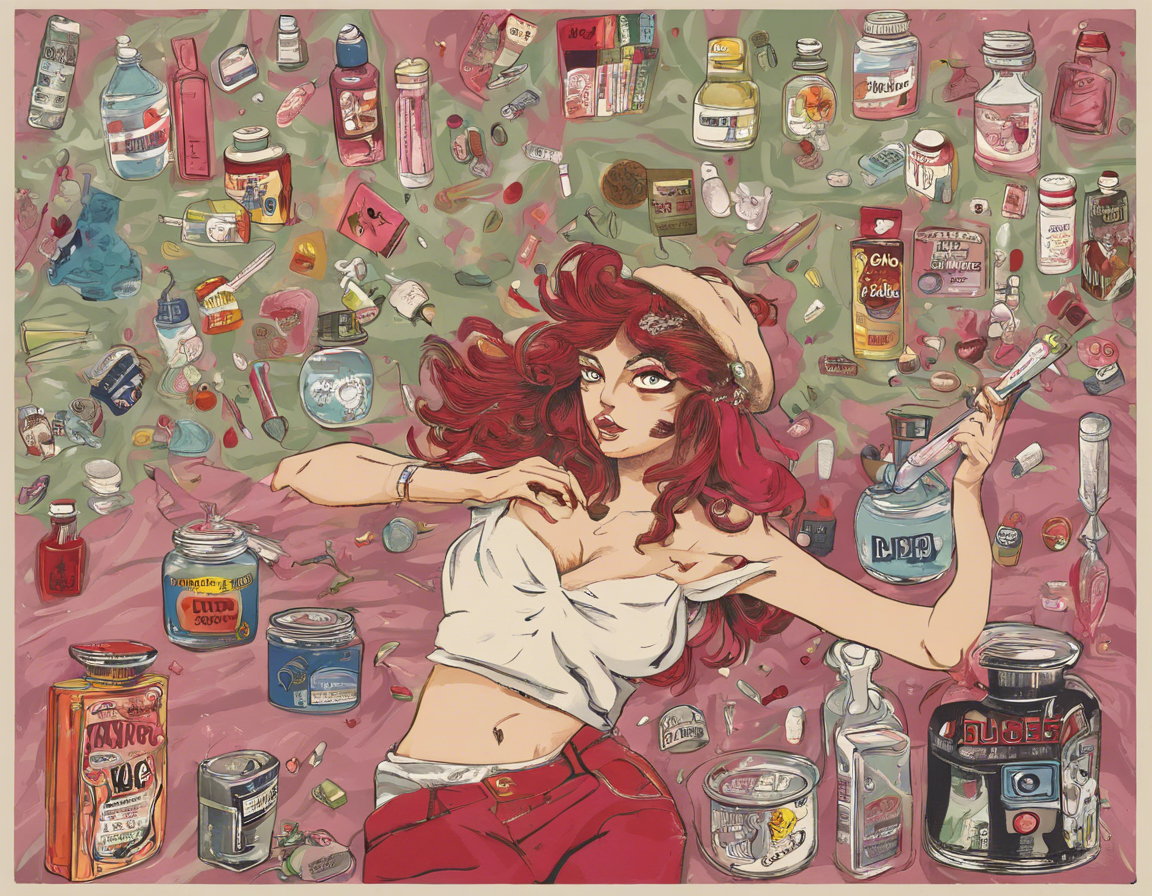Introduction
Love is a beautiful and powerful emotion that can bring joy, fulfillment, and meaning to our lives. However, not all relationships are healthy and nurturing. Some relationships can be toxic, draining, and even dangerous. In these relationships, love can become a drug that clouds our judgment, distorts our perception, and keeps us trapped in a cycle of pain and dysfunction.
In this article, we will take a closer look at dangerous drugs of love – toxic relationships that can have serious consequences on our mental, emotional, and physical well-being. We will explore the signs of a toxic relationship, the reasons why people stay in toxic relationships, and most importantly, how to break free from the cycle of toxicity and reclaim our sense of self-worth and autonomy.
Signs of a Toxic Relationship
Toxic relationships can manifest in various forms, but they often share some common red flags. Here are some key signs that you may be in a toxic relationship:
1. Constant Drama and Conflict: In a toxic relationship, conflicts are frequent, intense, and often irrational. You may find yourself constantly arguing, nitpicking, or walking on eggshells to avoid confrontation.
2. Lack of Respect: In a healthy relationship, respect is non-negotiable. In a toxic relationship, disrespect, belittling, and emotional abuse are often present. Your boundaries are disregarded, and your feelings are invalidated.
3. Emotional Manipulation: Manipulative behavior such as guilt-tripping, gaslighting, or playing mind games is common in toxic relationships. Your partner may use emotional manipulation to control and manipulate your thoughts and actions.
4. Isolation: Toxic partners may isolate you from friends and family, making you dependent on them for validation and support. They may discourage you from pursuing your interests or hobbies outside of the relationship.
5. Imbalance of Power: In a healthy relationship, power dynamics are balanced, and decisions are made mutually. In a toxic relationship, one partner may hold all the power and control, leaving the other feeling powerless and helpless.
Reasons People Stay in Toxic Relationships
Despite the obvious signs of toxicity, many people find it difficult to leave a toxic relationship. There are various reasons why individuals may stay in a toxic relationship:
1. Fear of being alone: The idea of being alone or starting over can be daunting, leading individuals to stay in a toxic relationship out of fear of loneliness.
2. Low self-esteem: A lack of self-worth and self-esteem can make it challenging for individuals to believe they deserve better, keeping them stuck in a cycle of toxicity.
3. Trauma bonding: The cycle of abuse and reconciliation can create a trauma bond between partners, making it hard to break free from the relationship.
4. Hope for change: Individuals may cling to the hope that their partner will change or that things will get better, despite repeated patterns of toxic behavior.
Breaking Free from Toxic Relationships
Breaking free from a toxic relationship is crucial for your mental and emotional well-being. Here are some steps you can take to reclaim your power and break free from the cycle of toxicity:
1. Recognize the signs: The first step in breaking free from a toxic relationship is to acknowledge and recognize the signs of toxicity. Trust your instincts and pay attention to how the relationship makes you feel.
2. Set boundaries: Establish clear boundaries with your partner and communicate your needs and expectations. Boundaries help protect your emotional and mental well-being.
3. Seek support: Reach out to friends, family, or a therapist for support. Surround yourself with people who uplift and empower you during this challenging time.
4. Prioritize self-care: Focus on self-care activities that nourish your mind, body, and soul. Engage in activities that bring you joy, peace, and fulfillment.
5. Let go: Understand that it is okay to let go of a toxic relationship, even if it is difficult. Remember that your well-being and happiness are paramount.
Frequently Asked Questions (FAQs)
1. How do you differentiate between a healthy and toxic relationship?
In a healthy relationship, there is mutual respect, trust, effective communication, and support. In contrast, a toxic relationship is characterized by disrespect, control, manipulation, and constant conflict.
2. Can a toxic relationship change for the better?
While change is possible, both partners need to be committed to self-reflection, growth, and change. It’s important to set boundaries and seek professional help if necessary.
3. What role does self-love play in breaking free from a toxic relationship?
Self-love is essential in recognizing your worth and value. It empowers you to prioritize your well-being and make decisions that align with your self-respect and dignity.
4. How can therapy help in recovering from a toxic relationship?
Therapy provides a safe space to process your emotions, gain insights into patterns of behavior, and build resilience. A therapist can help you heal from the trauma of a toxic relationship and navigate the path to self-discovery and healing.
5. What are some warning signs that indicate it’s time to leave a toxic relationship?
Warning signs that it’s time to leave a toxic relationship include persistent emotional or physical abuse, feeling constantly drained or anxious, and a lack of respect for your boundaries and well-being.
In conclusion, toxic relationships can have detrimental effects on our mental, emotional, and physical health. It is essential to recognize the signs of toxicity, understand why we may stay in such relationships, and take proactive steps to break free and prioritize our well-being. Remember, you deserve love, respect, and happiness in all your relationships.
